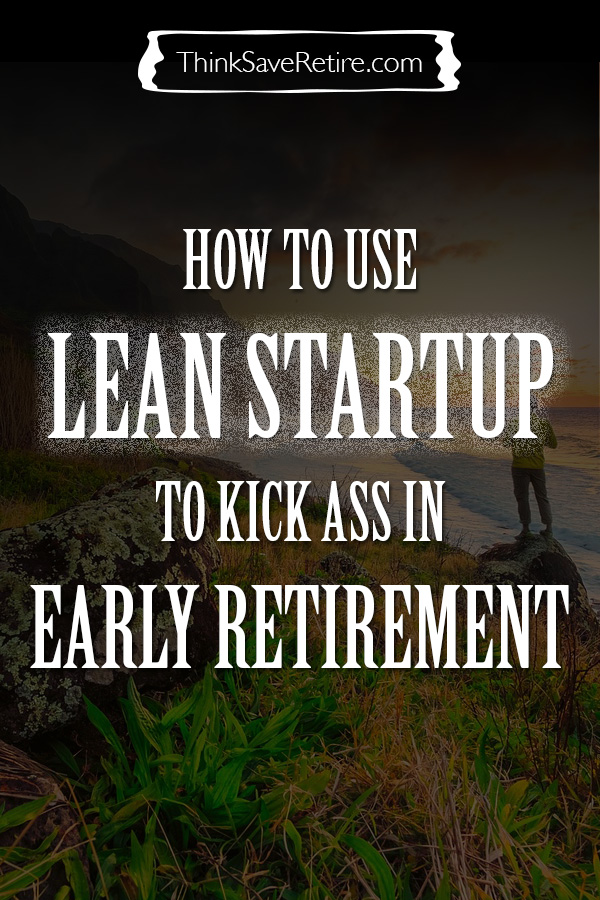How lean startup can improve early retirement

Lean startup. Those of us involved with small businesses may be aware of a set of new-age principles that distill business ownership down to its most basic foundation. And with a little thought, we early retirees can apply these same principles to maximise our desire to quit the rat race.

The Lean Startup method is a set of principles designed to get your business started and your product developed and in front of potential customers. Fast.
Many startups fail. And similarly, many career-driven professionals want out of corporate America. But, it doesn't always happen. Things don't go to plan. Like startups, many of us never seem to make any traction in our drive toward early retirement.
But, here's an idea. More and more small businesses are enjoying success by using lean startup. Intuit, who prides itself on lean methodologies, might be the biggest example.
Let's try to adopt lean principles to our goal of early retirement.
How lean startup can improve early retirement
The principles of lean startup are simple and described here:
- Eliminate Uncertainty
- Work Smarter Not Harder
- Develop an MVP
- Validated Learning
Eliminate Uncertainty - It is far too easy for startups to design products without knowing much about the market segment. In Lean, we test and confirm our assumptions. Will this product actually work? Will someone buy it? Who are my competitors?
Uncertainty kills early retirement. The lack of confidence and the unwillingness to try new things makes quitting early much more difficult than it needs to be. As with business, we will never be able to eliminate all uncertainty. But, our ability to try, even against all odds, improves our chances of success. Don't go into this half-assed.
Understand exactly what you want. Take note of the things that you're doing now that probably need to change. Also, don't assume it will magically happen, because it won't.
Work Smarter Not Harder - Working hard is for suckers. Working smart cuts through the bullshit of life. In a startup, smart work means developing only the features or services that your potential customers actually want, not those you think your customers want.
Working smart in our personal lives saves us time. We don't put in more hours at work. Instead, we make the hours that we do work more productive. We pick and choose the things that make us happy and pursue them with bloody gusto. And, we stop spending money on crap. We ditch subscriptions to magazines that we never read. We eliminate cable or satellite TV. We don't buy expensive cars.
We recognize what works for us and we do it. Believe it or not, early retirement involves very little hard work. It's enabled by your mind, not your brawn.
Develop an MVP - The Minimum Viable Product is a startup's bare minimum product or service, designed to elicit feedback from the community and, more directly, their customers. No frills. Only the basic features customers will use to generate feedback.
Testing early retirement enables us to make changes along the way. Try cutting cable television for a while. You might find that you get used to no cable and found a new passion, like reading, art or - hell, even taking more walks. Make incremental changes to your lifestyle during the accumulation phase to test how they work. Can they work better? Perhaps more can be cut out of your lifestyle than you had originally thought.
Then again, maybe less. But, we'll never know until we begin to try.
Validated Learning - At times, it is tough to determine progress if you are a startup. Are we truly developing what the customer wants to see? Or, are we wasting precious time to slip in home-grown "nice to have" features that we may like, but the customer will never use?
How are the changes that we make to our lifestyle affecting our mood? Our happiness? Maybe we went a little overboard with this change, but we might be able to go further with that change? Be aware. Observe and learn from the changes you make, then adjust as necessary.
Only keep those changes that result in a positive difference to you and your family. Reject the ones that cause more problems, or try to tweak them so they work better. Learn. Always learn.
What do you think? Can adopting the principles of the lean startup help you to master early retirement?